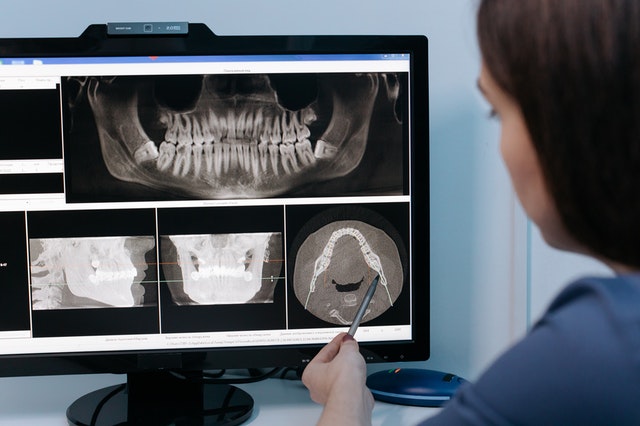If you have excruciating tooth pain or have had an injury to the mouth that could affect a tooth’s pulp or roots, your dentist might refer you to an endodontist.
An endodontist is a highly trained dentist who specializes in diagnosing and treating tooth pain. Endodontists focus on treating complex tooth issues that affect the pulp, nerves, soft tissues, and root canal tissues. They use their advanced training, techniques, and cutting-edge technology to give the highest quality dental care and make treatment more convenient and comfortable for the patient. An endodontist’s primary aim is to save natural teeth and preserve smiles and function.
What’s the difference between an endodontist and a general dentist?
Both endodontists and general dentists are dental care professionals. While all endodontists are dentists, not more than three percent of dentists are endodontists.
Compared to general dentists, endodontists complete an additional two or more years of training after dental school. This additional training focuses on diagnosing and treating tooth pain and other issues related to the tooth’s interior.
What procedures does an endodontist perform?
Your teeth are vital since you use them daily to cut and chew food. Thanks to advancements in technology and medicine, there are numerous treatment options for repairing damaged teeth. It’s therefore crucial that you get to know and understand your treatment options to determine how they will affect your dental health in the long run.
An endodontist performs the following dental procedures:
- Root canals/Root canal therapy
A root canal procedure is necessary when the pulp within the tooth gets inflamed or infected. During treatment, an endodontist will carefully remove the infected pulp, clean and disinfect the area, enlarge, shape and fill the root canal system, and then fill the access opening with a dental filling.
Although a general dentist can also perform a root canal treatment, there are some cases where the access is limited or the canal systems are more complex. In these instances, the general dentist may choose to refer the case to an endodontist.
Root canal pain can be excruciating. Since endodontists are experts in pain management, they make treatment painless, smooth, and comfortable. - Treatments for traumatic dental injuries
Accidents can result in chipped or completely knocked-out teeth. Regardless of the extent of the injury, your tooth requires immediate dental attention. Endodontists also specialize in treating traumatic dental injuries and can restore injured teeth. - Dental implants
Depending on the extent of tooth decay, injury, or the presence of a fractured root, an endodontist may determine that extraction is necessary. Dental implants are often an option for tooth replacement in this circumstance–they appear and function like your natural teeth. - Endodontic surgery
If standard root canal treatment isn’t enough to save your damaged tooth, your endodontist may recommend surgery. During surgery, they can identify problems that were undetected during the initial dental exam.
When should you visit an endodontist?
If you’re experiencing tooth pain, swelling around your teeth and gums, tooth sensitivity, or have an injured tooth, make an appointment with your dentist. After a dental exam, your dentist may recommend that you see an endodontist.
Are you looking for an endodontist in Surrey?
At Newton Village Dental Clinic, we offer our patients a collection of dental services to meet their dental needs. Visit us today to get started with your journey to restored dental health.





